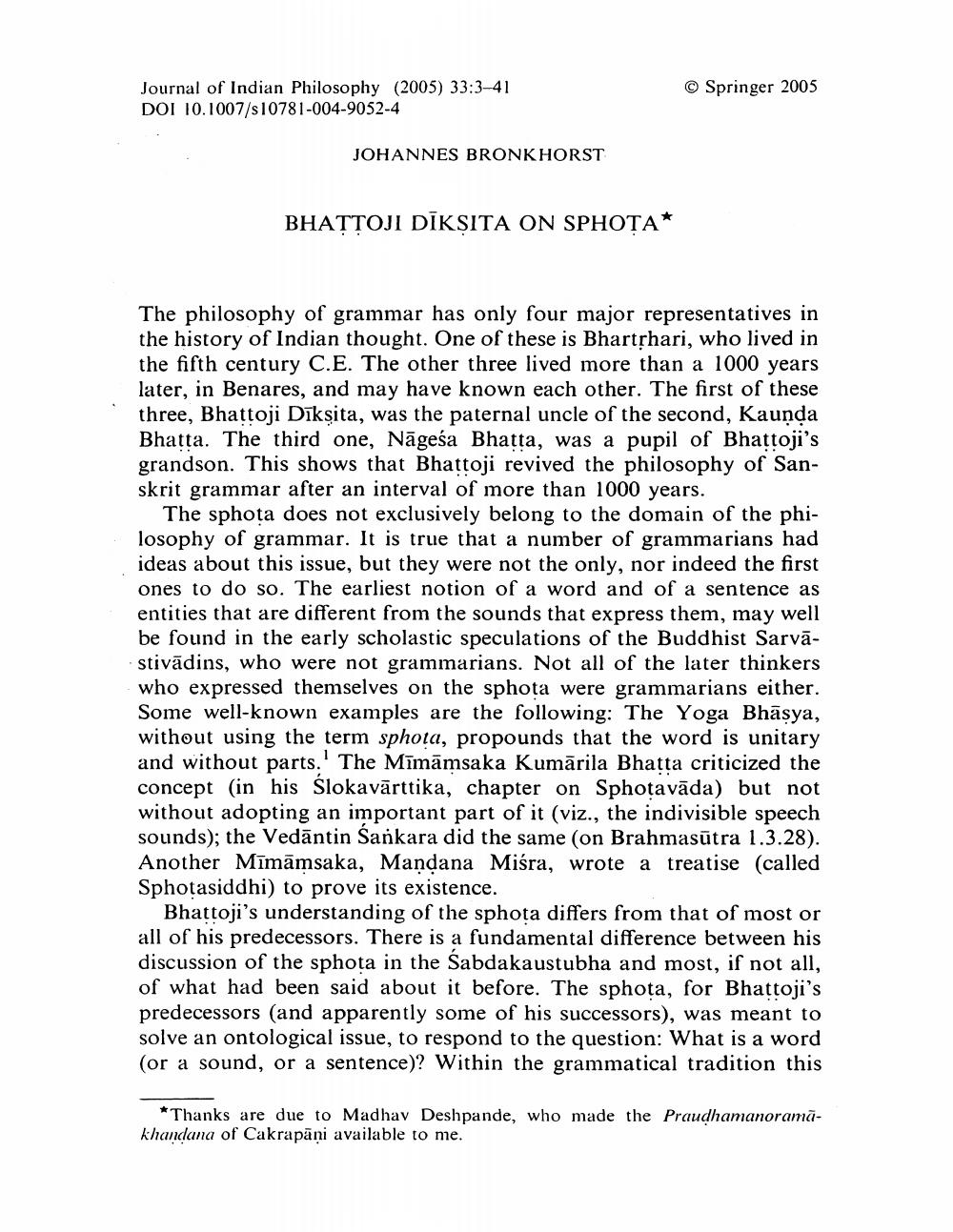Book Title: Bhattoji Diksita On Sphota Author(s): Johannes Bronkhorst Publisher: Johannes Bronkhorst View full book textPage 1
________________ Journal of Indian Philosophy (2005) 33:3-41 DOI 10.1007/s10781-004-9052-4 © Springer 2005 JOHANNES BRONKHORST BHATTOJI DĪKSITA ON SPHOTA* The philosophy of grammar has only four major representatives in the history of Indian thought. One of these is Bharthari, who lived in the fifth century C.E. The other three lived more than a 1000 years later, in Benares, and may have known each other. The first of these three, Bhattoji Dīksita, was the paternal uncle of the second, Kaunda Bhatta. The third one, Nāgeśa Bhatta, was a pupil of Bhattoji's grandson. This shows that Bhattoji revived the philosophy of Sanskrit grammar after an interval of more than 1000 years. The sphota does not exclusively belong to the domain of the philosophy of grammar. It is true that a number of grammarians had ideas about this issue, but they were not the only, nor indeed the first ones to do so. The earliest notion of a word and of a sentence as entities that are different from the sounds that express them, may well be found in the early scholastic speculations of the Buddhist Sarvāstivādins, who were not grammarians. Not all of the later thinkers who expressed themselves on the sphota were grammarians either. Some well-known examples are the following: The Yoga Bhāsya, without using the term sphota, propounds that the word is unitary and without parts.' The Mīmāmsaka Kumārila Bhatta criticized the concept (in his Slokavārttika, chapter on Sphotavāda) but not without adopting an important part of it (viz., the indivisible speech sounds); the Vedāntin Sankara did the same (on Brahmasūtra 1.3.28). Another Mīmāmsaka, Mandana Miśra, wrote a treatise (called Sphotasiddhi) to prove its existence. Bhattoji's understanding of the sphota differs from that of most or all of his predecessors. There is a fundamental difference between his discussion of the sphota in the Sabdakaustubha and most, if not all, of what had been said about it before. The sphota, for Bhattoji's predecessors (and apparently some of his successors), was meant to solve an ontological issue, to respond to the question: What is a word (or a sound, or a sentence)? Within the grammatical tradition this *Thanks are due to Madhav Deshpande, who made the Praudhamanoramakhandana of Cakrapāni available to me.Page Navigation
1 2 3 4 5 6 7 8 9 10 11 12 ... 39
